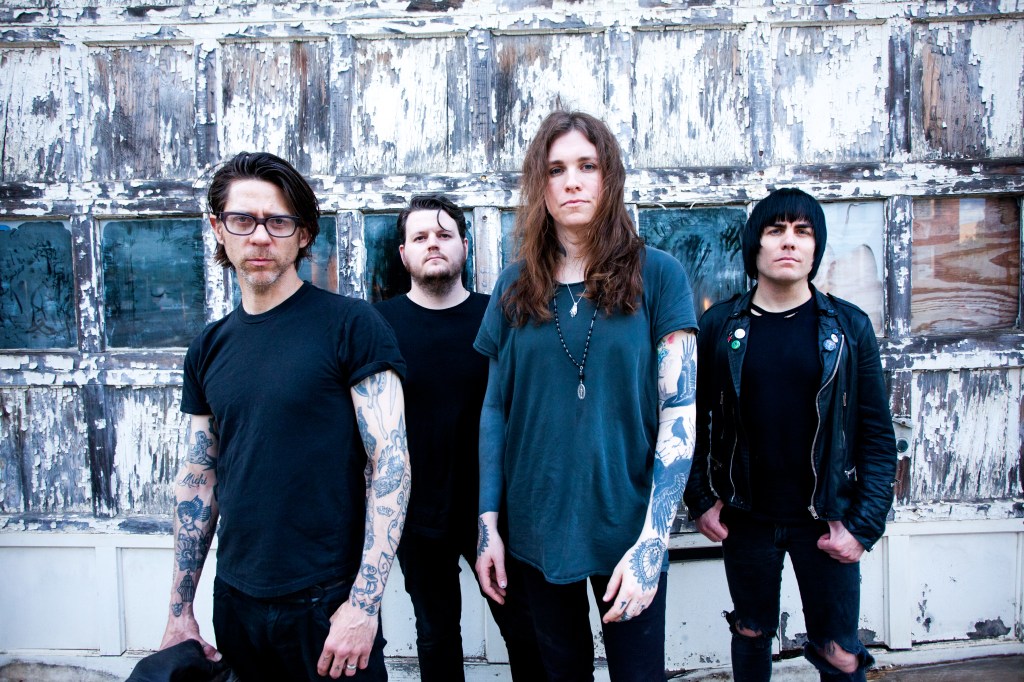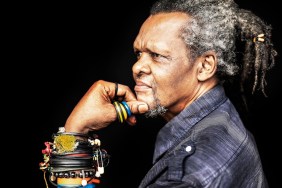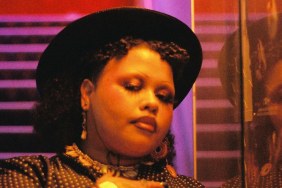2014’s Transgender Dysphoria Blues reaffirmed Against Me!’s position as one of the world’s most relevant and authentic punk rock acts. Released following frontwoman Laura Jane Grace’s very public coming out as transgender, it was a raw and vulnerable release that provided stunning insight into the emotional and physical turmoil Laura Jane Grace has endured throughout her lifelong struggle with gender dysphoria. Equal parts heartbreaking and triumphant, Transgender Dysphoria Blues proved that it’s still possible for a punk rock act to shock the world. What happened next, both on a personal and musical level was always going to be the subject of much intrigue.
On a personal front, Laura’s public profile blew up and she became firmly ensconced as a trans icon. True to her activist punk roots, Laura got busy using her increased visibility to try and make the world a more accepting place for LGBTI individuals, producing an Emmy Award nominated TV Show True Trans, speaking out not just on stage with Against Me!, but also at colleges, benefits and a seemingly endless array of press outlets, complimenting this work by making herself available to fans both in person after every Against Me! show and via social media. That Laura was able to do this, while undertaking her own transition into life as a woman, and all the emotional and physical changes that entails, is a testament not just to her own strength and willingness to be vulnerable in the public eye, but also to the ongoing support of her band.
Fittingly, Shape Shift With Me, Against Me!’s 7th studio album is the most musically collaborative record of the band’s career, one where Laura encouraged and embraced the input of not just longtime collaborator James Bowman, but the now established rhythm section of bassist Inge Johansson and drummer Atom Willard, resulting in dynamic offering that swings violently between the caustic punk of Against Me!’s earliest works and the visceral rock of their latter works, as they investigate the rather ‘unpunk’ notion of love in a very punk rock manner, asking: “what is love and what does it mean from a trans perspective?” in their inimitable style.
In the lead up to the release of Shape Shift With Me Laura was kind enough to grace Music Feeds with some time for an incredibly honest and enlightening discussion about the concept of love from a trans perspective, her own ongoing transitioning journey, the politics of emotion and gender identity and the omnipresent desire to throw bricks through patriarchal glass ceilings.
Music Feeds: Hi Laura! How are you going? Do you feel like the force is with you today?
Laura Jane Grace: Yeah, I do feel like the force is with me today, I like that!
MF: Fantastic! Me too! Now, for a punk record, ‘Shape Shift With Me’ covers a lot of brave territory in the sense that it’s a record about love, and more specifically love from a trans perspective. What inspired you to focus on that subject matter this time around?
LJG: I guess really just because that was what I was living. I was finishing up writing a book at the same time I was writing this record. The book was really heavy work and it was really emotionally taxing and meant a lot of going back and looking at the past and reconciling the past, and reliving the past, and being stuck in that weird place. It was cool how writing songs became my diversion when I had that focused responsibility weighing on me. I’d be like, technically have a chapter due and I need to turn it in, but why not pick up my guitar and write a song instead?
When I was writing songs I needed to focus on what I was doing right then and what I felt right then at that moment. Not how I felt about something that happened in the past or anything like that. It became that, and we were on tour for two years straight in support of our last record. Each tour was its own awesome adventure and I would write songs while I was on tour. We would come back and we were based in the studio we recorded the record at for those two years. We would record a song as we went and we came back from those two years of touring and realised, “well shit, we’ve already got a finished record! We don’t need to start fresh and start working on songs. We’ve just got it!”
MF: In a musical sense, Shape Shift With Me, sounds distinctly different to its predecessor, with some tracks calling to mind your earlier works and others branching into new sonic territories, is that a product of a more open collaborative process this time around?
LJG: For sure. With Transgender Dysphoria Blues, those songs were written with two different bands playing them. It was limiting to [drummer] Atom specifically in that way on Transgender Dysphoria Blues. It was a case of telling Atom, these are the structures that already pre-exist, so you need to come up with beats to fit what’s already there. As opposed to these songs which are written more as the four of us working together and really giving each of us the chance to have the best of our abilities showcased in an awesome way. Especially since we were self-producing the record, everyone was stoked with their own parts.
I sometimes pinch myself when I look at my band, and I’m like “oh, shit. That’s Atom Willard from Rocket from the Crypt and Social Distortion and so many other crazy bands! And that’s Inge from fucking (The) International Noise Conspiracy. Oh my god! That’s James, my best friend since I was 14 years old.” It feels awesome and I feel like we are a really powerful band right now.
MF: Trust me, as a fan of the band, I also have that thought when I watch the current line up of Against Me!, I’m like, “Holy fuck. It’s a punk rock all star group up there.”
LJG: It’s cool. It’s like driving in a really fast car, a really fast powerful car. That’s how I feel about it.
https://youtu.be/GcGiQ1GRoOca
MF: As with Transgender Dysphoria Blues the lyrics are incredibly personal and direct. Was exposing yourself to the world in this way cathartic for you? Did you find writing the record any more or less challenging than writing Transgender Dysphoria Blues?
LJG: It was all really easy, like really easy. Nothing was a struggle to come up with. It was surprising in that way that I didn’t even realise until I was finished. It was more a case of thinking “oh, that’s crazy. It was not a struggle at all.” Again, I think, that really had to do with it being a diversion from the book writing process, unlike the book or some past records, I was not feeling any pressure to finish songs to meet anyone else’s timelines. I wasn’t writing under pressure, which was a great thing.
MF: Given your anarcho-punk origins, and the state of the U.S. at the moment, I’m guessing a lot of people wanted a political record out of Against Me! this year and you’ve gone and delivered an introspective and personal one. Which is pretty punk rock of you in the sense that you’re defying expectations. I get the sense it occurred more naturally than that though?
LJG: Yeah, I guess I forgot there was an election coming. I don’t know. This election season is so weird where I’m not in any way encouraging apathy or anything like that, but it’s like if you see two people having a really stupid argument. You don’t want to jump in there. You’re not going to solve their argument for them. The kind of thing to do is take a couple steps back and be like, “Fuck both of you. This is just shitty.” I don’t know. It’s really … I’m hopeful for things to work out and everything, but it’s just like politics feel like such a scam sometimes. I can’t always focus on that. It drives me insane.
MF: Well, that’s okay, you can always take the Ian MacKaye approach that “your emotions are nothing but politics.”
LJG: Well I believe that strongly. I quote Ian MacKaye all the time with that quote specifically in interviews. Sometimes that’s the best thing you can do is just keep on keepin’ on and creating your art and being true to yourself in times when everyone else is so fake and so vapid.
MF: Keeping that idea in mind, have you discovered through your transitioning that a lot of your understandings of and perceptions of yourself and your emotional spectrum had been shaped by societal expectation of gender roles? That a lot of the disconnect that you felt was being caused in part by the misconception that emotion has to adhere to a gender stereotype? That your emotions were quite literally being dictated by politics?
LJG: I’m not sure if this totally answers what you’re asking, but it triggers something in me that really is relevant to the record. Where a lot of this experience, for me on an emotional side, involved questioning what emotions are exclusive to gender. Or are emotions exclusive to a gender? I’ve had the experience of being full of testosterone, and I’ve had the experience of being full of oestrogen. On this record there are darker, angrier moments which were sometimes euphoria inducing. In those moments I was feeling rage, and I was feeling anger, and those feelings are feelings that I used to attribute to being a highly male thing. So I found myself questioning is that the case, or is anger just anger? Is it not exclusive to a gender like people might think it is?
There was lots of moments like that where it was just really asking those questions and examining it from that standpoint. Then, ultimately, trying to see what is the fucking point of love? Is it a human reproduction thing, or is it a genderless thing? Does it go beyond that, or does it end at that? If you were two people who were in love, if you strip one of the persons of gender, does the love exist? What happens to that love just because of that one thing being gone? This album is asking that question.
MF: That’s a fascinating perspective to have and to be able to experience and write about. To me, a lot of it sounds like you still want to be throwing bricks, just now you want throw them at the glass ceilings of the patriarchy, more so than the windows of Starbucks?
LJG: Well, Starbucks does usually have gender neutral bathrooms, when it comes down to it. Excellent benefits too for LGBTI people and couples who work for the company. Which is messed up, makes me regret no one likes them and kind of regret naming them so specifically in that song, but whatever. I guess it’s like recognising with that, that’s part of my coping mechanisms, or my natural instincts now, because of punk rock. That wanting to throw a brick through something, or that destruction, cause chaos, type of impulse, that’s just ingrained in you in that way. Again, I don’t think that’s anything that specific to a gender. It’s just a coping mechanism that either gender can pick up. Sometimes you need to throw a fucking brick through something.
MF: Every element of your artistic output as a band, from the music to the lyrics to the artwork, is completely uncensored. An example of that being the artwork on ‘Shape Shift With Me’. That would be too controversial for a lot of labels. It’s a powerful piece of art, as a result. Is this the punk rock that you were searching for when you were younger, just being able to do whatever the fuck you want, how you want, when you want?
LJG: The cover is kind of meant to be an experiment in a way, inspired by a charity organisation that I’ve been doing a lot of work with over the past couple years called Gender is Over. If you’re not familiar with them, they do these cool jerseys that are really comfortable to wear that say “gender is over, if you want it” on them, kind of a play on the John Lennon, Yoko Ono, “War is Over” thing. The proceeds from the jerseys are given to different charities, but they ask before you purchase one, they ask you to answer the question of, “What does it mean to you?” What does seeing that written on a shirt mean to you?” Similarly when you’re wearing it, having the experience of people coming up to you and sometimes they’re enraged by what it says on your shirt. Other people are stoked on what it says on your shirt. Other people just question it.
The same thing with the cover is that, for me when I look at that cover, I identify with the person kneeling on the ground. That’s a part of the emotional state that’s present on the record with lyrics, “I am the dirt under your nails.” For other people, they immediately see it in one way or another, and that’s also tied into the record with this examining power positions, and power positions in genders and relationships and the way that works. Then nobody actually questions where’s the image from and what is it an image of? I don’t want to give away the answer to that, but I know where it’s from. It’s an interesting thing seeing people react to the cover, but it’s very intentional.
MF: That’s brilliant. It also links in beautifully to the next thing I was curious about, which is, due to the exposure that you now attract, your words and actions have a power that they might not have previously had. You continue to harness that power to push positive messages on behalf of the LGBTI community, be it via your TV show, burning of your birth certificate in protest of the HB2 law, speaking at colleges, or your upcoming book. Is using that platform an important thing to you? Are you ever surprised at how much your actions are impacting others?
LJG: It does constantly blow my mind the reach that things have and the reverberations that will come from any of the things that you mentioned. It always surprises you how far it goes. I don’t have much choice in being visible when it comes down to it. If I’m doing press or something like that because that’s part of what you do when you make an album as a band. You put out an album and you do press, and the conversation’s going to be about something. I’d rather talk about things that actually matter and actually shift the focus in that way to raising awareness and trying to do good with that too. That makes the whole thing more meaningful, and then thus more enjoyable to do when it comes down to it.
MF: There’s not a part of you that wishes that someone would just ask you about selling out again instead?
LJG: Haha! Yeah, no, totally I want to talk about that some more! I will admit that there is sometimes the music nerd in you that wants to talk about gear and the cool guitars you’ve used on record, talking about toys like that, but that’s not typically what people are interested in, so I’m fine to talk about these things instead.
MF: I’ll happily have that chat with you another day. Readers are going to want to know about this book that you’ve got coming out though, which is titled “Tranny: Confessions of Punk Rock’s Most Infamous Anarchist Sellout”, due out on November 15th. What was the process of writing that book like for you? Did you find it a different process from writing a record? Was it any more or less challenging for you?
LJG: Very much a different process, very solitary, and at times frustrating. It’s just you and a computer so if you can conjure a cold, dark vision of that, that’s what it was like for most of the time. I started working on it in earnest maybe four years ago. I’ve always kept journals and went back and transcribed all my journals, went through everything I had and then began the work of editing all that down into something readable as a book. It was a long process. I think it took about 20 years off my life. I don’t know. We’ll see. I’m really done. I’m so over sitting in front of a computer, it’s unreal.
MF: Well it’s a good thing you’ve got a record to go out and tour then isn’t it?
LJG: I’m very thankful for that, yes.
MF: Did you discover any unexpected truths in the journals when you were going through them? Anything that you were like, “Holy shit. I had this huge amount of insight into my own self when I was a kid, and I wasn’t even aware?”
LJG: I’m not sure really how to answer it specifically other than saying, when I was finished I felt crushed. I just felt like really kind of decimated looking back and reading through it and having to be, “Yeah, okay. That was my life, and that was what I did, the choices that I made.” Sometimes that’s not pretty at all. There was a lot of good in there, but there was a lot of regret in there, just like a lot, a lot of regrets. Having to own that and go forward was really … I was stunned how much it knocked me on my knees.
MF: Sounds like a difficult but valuable process. It makes me almost wish that everybody had kept journals, the way that you have, so that they could really examine themselves and have a greater understanding of their life and how they ended up where they are.
LJG: I definitely had that as an advantage as far as, I think if most musicians decide, “Oh, I want to write a memoir or something like that.” Then, you’re tasked with remembering what happened over the course of two decades. I didn’t have to remember anything because I’d written everything down. I was just all there, and that was something that was really important when writing it too, to stay true to that, to not go back and justify the way you felt about something from a present day standpoint, explaining it. Well, if I’d just known this or I didn’t see this coming or blah, blah, blah. That wasn’t the goal. It was put it in there as it was lived.
MF: It sounds like it is going to be one of the rare rock autobiographies or memoirs in which sections of the story isn’t being told principally via other people’s recollections. I look forward to reading it.
LJG: Yeah!
MF:No worries. I’ve got the quintessential interviewer’s closing out interview question when you’re doing press in Australia. When are we going to see you Down Under again?
LJG: I can’t say specifically yet, but I can give you a strong hint that we will be coming next year. If I were putting money on it, I would say that it’s definitely happening. We will see you next year.
MF: That’s rad news for everyone! I’d like to thank you for taking the time to talk to Music Feeds. Have yourself a fantastic day.
LJG: My pleasure. It was nice talking to you.
–
Shape Shift With Me is out now. Read our album review here.












